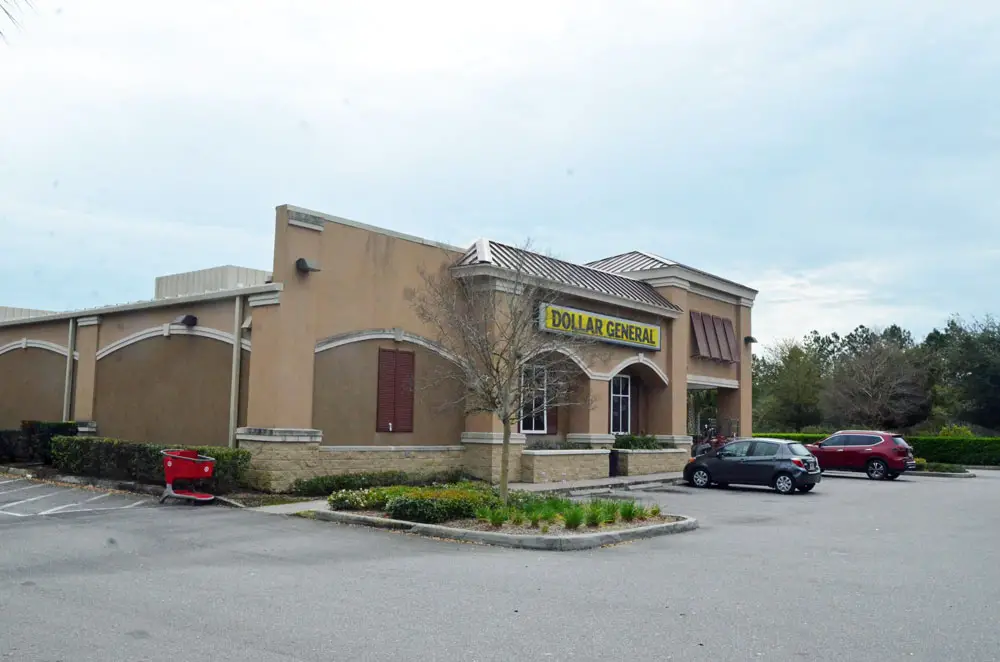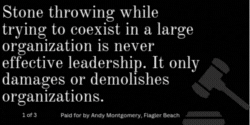
By Celine-Marie Pascale
Michael Chase works two jobs in southeast Ohio: one as a hotel night clerk and one as retail support – sorting through donations, setting new merchandise out, cleaning – at a nonprofit.
His schedule is not fixed in either job, and his hours are not guaranteed. Some weeks he works back-to-back eight-hour shifts. Some weeks he works fewer than 30 hours. Neither job offers sick leave, vacation time or health insurance.
Chase shares an apartment with three other people, something he finds stressful. And he is not always confident that he can make his portion of the rent. Between the two jobs, Chase earns less than US$16,000 a year. While it may not sound like a lot, that places him well above the federal poverty line for a single person: $12,760.
As a sociologist concerned with inequality, I spent one year conducting field work and interviews across the country for my recent book, which examines how Americans cope with economic struggles amid stagnant wages and rising costs of living.
Nearly everyone I interviewed worked multiple service industry jobs. Yet I didn’t meet anyone who thought of themselves as poor.
More commonly they referred to themselves as the struggling class: They struggle economically and hold an often unfounded hope that things will get better. But you can’t work your way out of poverty in low-wage jobs.
Low-wage jobs in the 21st century are not only the lowest rung on a career ladder, they are often the only rung.
Across the country, millions of low-wage workers like Chase struggle to pay their bills each month, despite holding multiple jobs.
Defining poverty
“I’m fine,” Chase told me. “I don’t consider myself poor … I guess I would say I am struggling a little bit. For me, people who don’t have food are poor. Or someone who can’t feed their kids, or you might not have running water or even electricity. You don’t have the right things you need to even survive.”
Chase was not unusual in his assessment of poverty.
The economic struggles of millions in the United States are erased by the federal definition of the poverty line and by outdated conceptions of low-wage work.
A recent study by the Brookings Institution defined low-wage work as a median hourly wage of $10.22, or $17,950 per year. By this measure, 44% of all workers in the U.S. are low-wage earners.
In 2021, according to the National Low Income Housing Coalition, a worker needs to earn $20.40 per hour to be able to afford a modest one-bedroom apartment anywhere in the country. That’s an annual salary of $40,800 – more than twice what Brookings refers to as the median wage for low-wage work.
Federal data shows that roughly 51% or workers live on less than $35,000 annually. Low wages, unreliable hours and a lack of benefits have come to dominate the U.S. economic landscape.
To understand the economic hardship that more than half of Americans face, it is critical that researchers shift their thinking away from an outdated federal measure of poverty. Instead, they should focus on measures of self-sufficiency.
Economic self sufficiency
Economic self-sufficiency is the ability to reliably meet basic needs, including food, housing, transportation, child care, medical expenses and other necessities.
The Economic Policy Institute, a nonpartisan think tank, provides a Family Budget Calculator that calculates measures of economic self-sufficiency across the country.
The organization provides a transparent estimate of what it costs to be economically self-sufficient. It is not a calculation of poverty.
The calculations are based on Department of Agriculture data such as food costs and Fair Market Rent, a measure developed by the Department of Housing and Urban Development to determine payments for housing assistance programs.
In southeast Ohio, the self-sufficiency budget for Chase provided by the Economic Policy Institute calculator is $34,545 – more than twice what he earns and nearly three times the federal poverty line.
If Chase lived in San Francisco, his economic self-sufficiency budget would be $69,072. Across the bay in Oakland, California, it would be $57,383. Keep in mind that the federal poverty line for a single person living anywhere in the U.S. is $12,760.
For families, the gap between the federal poverty line and economic self-sufficiency is even wider. Self-sufficiency for two adults with two children who live in San Francisco requires an annual income of $148,440, while the federal poverty line for this same family of four in 2020 was $25,701.
Self-sufficiency calculations vary by region. For example, self-sufficiency for this same family of four in Athens County, Ohio, would require an income of $72,284; in the Sioux City metro area of South Dakota, this family would need $78,935 to meet all of their basic needs.
Self-sufficiency measures are not perfect.
The Economic Policy Institute calculations do not consider debt, which can be significant. Further, the calculation relies on Fair Market Rent, which designates regional rents in the 40th percentile as fair market. This means that in any area, 60% of housing is more expensive than Fair Market Rent.
For Chase in Ohio, a livable one-bedroom apartment runs $800 to $1,300 a month, but Fair Market Rent allocates only $605 for rent.
Despite these problems, measures of self-sufficiency are more effective than the federal poverty line. By delineating the costs of basic expenses, they draw a far more accurate line of where poverty begins.
It might seem like a matter of common sense that the nation needs to calculate how much families actually need to spend on basic expenses in order to understand where poverty begins. But policymakers still rely on the federal poverty line for calculating economic safety nets. A measure of self-sufficiency would enable the nation to identify levels of economic need as they exist – and therefore to establish effective safety nets.
![]()
Celine-Marie Pascale is Professor of Sociology at American University.
![]()
![]()




























cgm says
get a second job like I did!
Mark says
I know exactly what will help. Shut another oil pipeline! Or stop the use of all fossil fuels before green energy can support our needs. That’ll do the trick.
Jimbo99 says
I would say at the very least it’s the Unaffordable Care Act maximum for being a Government Recipient (was $ 51K, but Covid Relief may have changed that) for a subsidy. Not intended to shame anyone for income level their employer may or may not be able to compensate, but the logic if one needs a subsidy for unaffordable healthcare, you can imagine that too many are also getting unaffordable food, unaffordable housing and any other unaffordable necessities of life with Federal Government subsidies that may exist.
Dennis says
I would suggest that Mr Chase, and the likes, are suffering from their own poor decisions. I first would ask, how much education does he have. I would bet he has very little education, and I would also ask if he has any felony convictions. The uneducated or people with criminal pasts are almost assured of filling only the minimum paying jobs. I watch a lot of one Canadian TV station, and they have a commercial that hits true to the heart. THROUGH EDUCATION, EVERYTHING IS POSSIBLE. With poor education, and the ability to barely read, write, or speak, face it, you will ALWAYS be in the low pay group. There will always be poor people, mostly because of the poor decisions they make. That will NEVER change.
Timothy Patrick Welch says
[Comment removed. Do not use this site to spread disinformation. Thanks.–FL]
Denali says
If you are equating education with schooling, I believe that you are off the mark. A formal education is not always the answer. I know folks with MA’s who have devoted their lives to social work and the betterment of others who barely make a living wage and there are teachers with MS and MA’s who struggle to feed their families. I also know HSD’s (High School Dropouts) who because of their innate skills and abilities are making very good money by twisting wrenches or building furniture.
Another huge issue is opportunity – without my white privilege, I am not sure that some of the doors I walked though would have been opened for me. I can only hope that others also recognize this fact.
Timothy Patrick Welch says
Should we not reward the working poor instead of the non-working poor?
Should we not encourage families to stay together, and focus on long term goals?
Sherry says
@ Denali. . . excellent comment! I can assure you as a professional high tech recruiter for 20 years, racial discrimination in hiring is all too “COMMON”. I was told many times, by hiring managers, not to send resumes of certain kinds of people. While they could not mention skin color, their message was clear.
Massive bigotry is cooked into the very fabric of our society at every level. Until truly “EQUAL” opportunity exists for “EVERY” American, “blaming the victims” for “not getting a job” is nothing short of despicable!
A.j says
Wow, discrimination is all too common everywhere in this so called Christian country. As a Black born in the deep south. I saw discrimination first hand. Truth be told it not only Whites discriminating it was people of color also. Mostly Whites because they had everything. Ever heard of red lining, was very common and probably still is. We know the white banks did it to people of color. If you lived in a certain zip code you were denied a loan most of the time. If you had all the requirements and was a Dr. a white person with less credits would be considered first. It is not necessarily that people are lazy ot is the white system going against them. White privilege is alive and well. I c it all over Central Fla. They have the best jobs the best homes arrested less and probably pay less taxes. My life has been O.K. by GODS GRACE. Owned 2 homes at one time, they were nice homes. Nice vehicles etc. I vote. work, never been to jail. The point is GOD will bless anybody regardless of this society. By the way we raised 5 children. 4 boys and 1 girl. None of our boys ever been in trouble with the law, I’m talking Black men now they are grown and very productive and taking care of their families we bunked the white and we are very successful. All GLORY AND PRAISE GO TO GOD ALMIGHTY. We are pretty frugal with our money, not perfect but good. If we did it anybody can make in this society. If my forefathers survived Jim Crowe, any person can survive today.